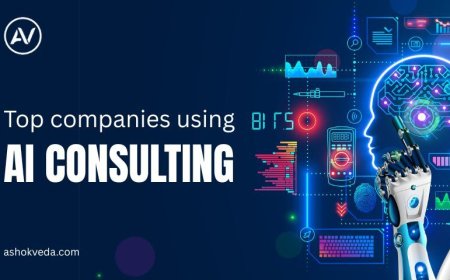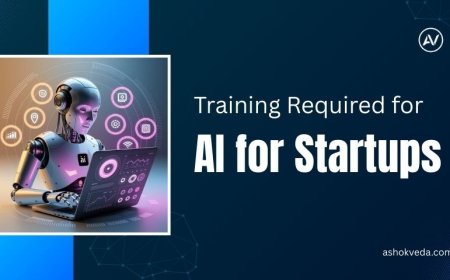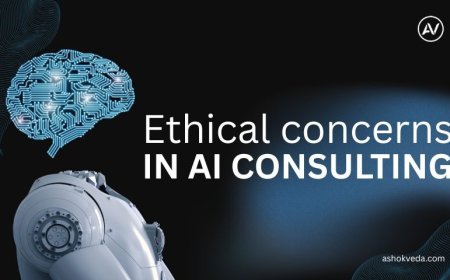Latest Research in AI Consulting: Trends and Innovations
Explore the latest research in AI Consulting in 2025, including trends, tools, ethical practices, and innovations shaping business success.
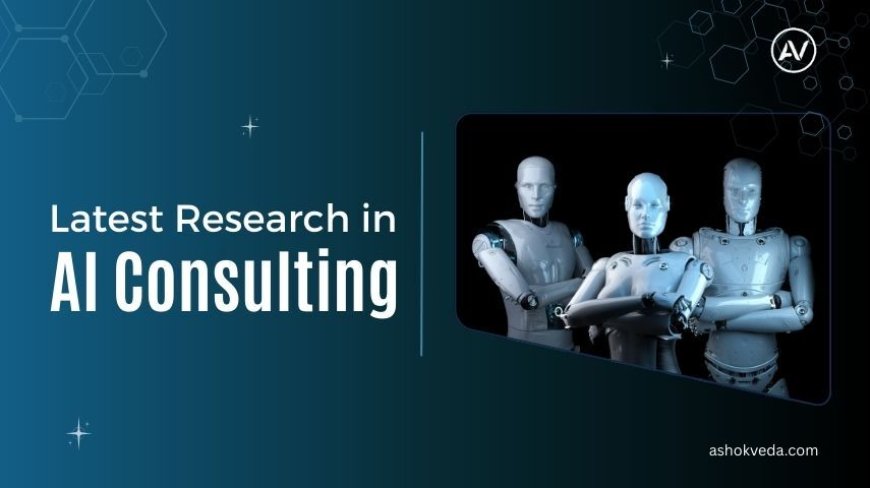
Artificial Intelligence (AI) has become one of the most transformative forces in business and technology. According to recent reports, as of 2025, the global AI market is projected to surpass $300 billion, with a compound annual growth rate (CAGR) of over 30%. Businesses across industries are increasingly adopting AI to optimize operations, enhance decision-making, and drive innovation. In this dynamic environment, the latest research in AI Consulting plays a critical role in guiding organizations on how to implement AI solutions effectively, ethically, and profitably.
The evolution of AI has brought significant breakthroughs in machine learning, natural language processing, and predictive analytics, reshaping consulting practices across industries. AI consultants now play a crucial role as strategic partners, helping businesses leverage AI responsibly and sustainably. Keeping up with the latest research is essential for organizations and stakeholders who want to remain competitive in the ever-evolving AI industry.
Why the Latest Research in AI Consulting Matters
AI Consulting is not merely about implementing algorithms—it’s about translating research into actionable insights for businesses. Recent research highlights the importance of:
-
Reducing Bias: Ensuring AI models are fair and inclusive.
-
Scalability: Implementing solutions that grow with the organization.
-
Automation: Increasing operational efficiency while maintaining accuracy.
-
Ethical AI Practices: Incorporating governance frameworks to prevent misuse.
For businesses, following the latest AI research ensures that their strategies are not only cutting-edge but also compliant with evolving standards and regulations.
Key Areas of Recent Research in AI Consulting
1. Advanced Machine Learning Models
Research in machine learning is focusing on more sophisticated algorithms that can handle complex, unstructured data. Some notable developments include:
-
Self-supervised learning: Reduces dependency on labeled datasets, making model training more efficient.
-
Transformer architectures: Enabling better natural language understanding for AI-driven analytics.
-
Federated learning: Allows multiple organizations to train AI models collaboratively without sharing sensitive data.
These advancements empower AI consultants to provide more robust solutions that are accurate, scalable, and secure.
2. Natural Language Processing (NLP) Breakthroughs
NLP research has seen tremendous growth with applications in chatbots, sentiment analysis, and customer experience management. Key trends include:
-
Generative AI for content creation: Businesses can automate marketing content, reports, and customer engagement strategies.
-
Context-aware NLP models: Improved understanding of customer intent, leading to personalized experiences.
-
Real-time language translation: Facilitating global business communication without human intermediaries.
AI consultants leverage these NLP innovations to create solutions that improve productivity and enhance customer engagement.
One of the most critical areas of AI research is explainable AI, which allows stakeholders to understand how AI models make decisions. Benefits include:
-
Transparency: Builds trust between AI systems and business users.
-
Accountability: Helps organizations meet regulatory compliance.
-
Error detection: Enables consultants to identify flaws and optimize models effectively.
XAI is particularly significant in industries like finance, healthcare, and legal services, where decisions must be transparent and auditable.
4. Ethical AI and Governance
Recent research emphasizes the growing importance of ethical AI. AI consulting is not only about efficiency—it’s about responsibility. Key focuses include:
-
Bias detection and mitigation: Preventing discriminatory outcomes.
-
Data privacy: Ensuring compliance with GDPR, CCPA, and other privacy regulations.
-
Sustainable AI: Reducing the environmental impact of AI models.
Consultants integrate these insights to create frameworks that balance innovation with responsibility.
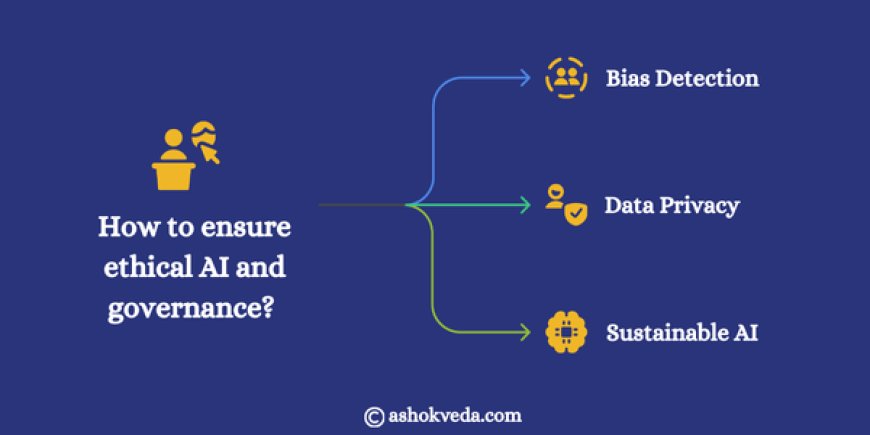
5. AI for Predictive and Prescriptive Analytics
Modern AI consulting increasingly leverages predictive and prescriptive analytics to provide strategic insights. Recent research shows:
-
Predictive models can reduce operational costs by up to 25%.
-
Prescriptive analytics assists organizations in decision-making by suggesting optimal actions.
-
Integration with IoT and big data allows businesses to forecast trends in real time.
These developments make AI consulting indispensable for organizations seeking competitive advantage.
6. Automation and AI-Driven Decision Systems
Automation remains a key theme in AI research. Consultants are now using AI to:
-
Streamline repetitive tasks in HR, finance, and supply chain.
-
Optimize resource allocation using predictive scheduling models.
-
Enhance customer service through AI-powered virtual assistants.
By leveraging these insights, AI consultants help businesses achieve efficiency while freeing human resources for strategic tasks.
7. AI Security and Risk Mitigation
Security is a top concern as AI adoption rises. Research highlight:
-
Vulnerabilities in AI models, including adversarial attacks.
-
Secure AI frameworks for sensitive industries such as healthcare and banking.
-
Risk assessment protocols for AI implementation.
AI consultants rely on these findings to ensure solutions are not only effective but also secure.
8. Industry-Specific AI Research
Research increasingly focuses on industry-specific AI applications:
-
Healthcare: Predictive diagnostics, personalized treatment recommendations.
-
Finance: Fraud detection, algorithmic trading, credit risk assessment.
-
Retail: Customer behavior prediction, inventory optimization.
-
Manufacturing: Predictive maintenance, quality control, and supply chain optimization.
Consultants can tailor AI solutions based on these research insights, creating targeted strategies for each sector.
9. Cost and ROI Optimization in AI Consulting
Recent studies provide detailed models for calculating AI ROI:
-
AI projects can yield ROI of 30-50% when implemented strategically.
-
Cost factors include infrastructure, data acquisition, model training, and ongoing maintenance.
-
Consultants use research to identify cost-effective tools and frameworks, ensuring sustainable AI adoption.
These insights allow organizations to make informed investment decisions.
10. Emerging Tools and Open-Source Frameworks
AI research increasingly highlights open-source frameworks that reduce implementation costs:
-
TensorFlow, PyTorch: Widely used for deep learning applications.
-
Scikit-learn: Ideal for small to medium predictive models.
-
Hugging Face Transformers: Cutting-edge NLP models.
Consultants integrate these tools to provide cost-efficient, scalable, and high-performance solutions.
Key Takeaways from the Latest Research in AI Consulting
-
AI adoption is growing exponentially, with 2025 projections exceeding $300 billion globally.
-
Consultants are increasingly relied upon to implement AI responsibly, ethically, and efficiently.
-
Research highlights breakthroughs in machine learning, NLP, automation, ethical AI, and security.
-
Open-source tools and industry-specific insights allow consultants to deliver customized, cost-effective solutions.
-
Staying updated with research is crucial for businesses to maintain a competitive advantage.
FAQs
Q1. Why is research in AI Consulting important?
Research ensures that AI solutions are effective, secure, and aligned with ethical standards.
Q2. What are the main areas of AI research for consultants?
Key areas include machine learning, NLP, explainable AI, ethical AI, automation, and industry-specific applications.
Q3. How can AI research improve business ROI?
By providing predictive insights, optimizing resources, reducing operational costs, and ensuring strategic decision-making.
Q4. Which tools are most used in AI consulting?
Popular tools include TensorFlow, PyTorch, Scikit-learn, and Hugging Face Transformers.
Q5. How do ethical considerations influence AI consulting?
Ethical AI frameworks prevent bias, protect data privacy, and ensure responsible AI adoption.
The latest research in AI Consulting is reshaping the way businesses implement AI. From explainable AI and ethical governance to predictive analytics and automation, these breakthroughs empower consultants to guide organizations toward strategic success. For businesses, partnering with AI consulting experts who stay at the forefront of research ensures optimized performance, reduced risk, and a competitive edge in an increasingly AI-driven world. By integrating research insights into strategy, AI consulting continues to evolve from a technical service into a strategic enabler, shaping the future of industries across the globe.

























